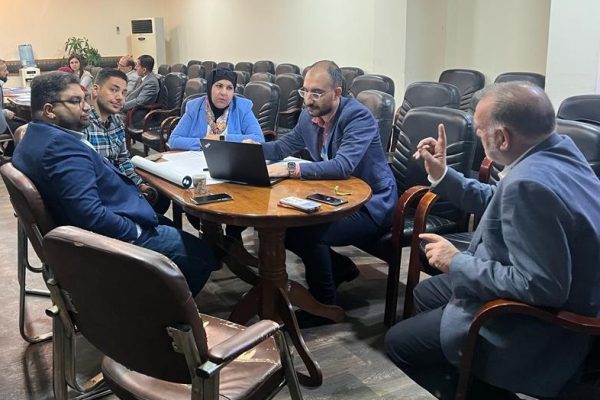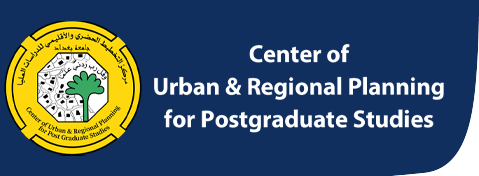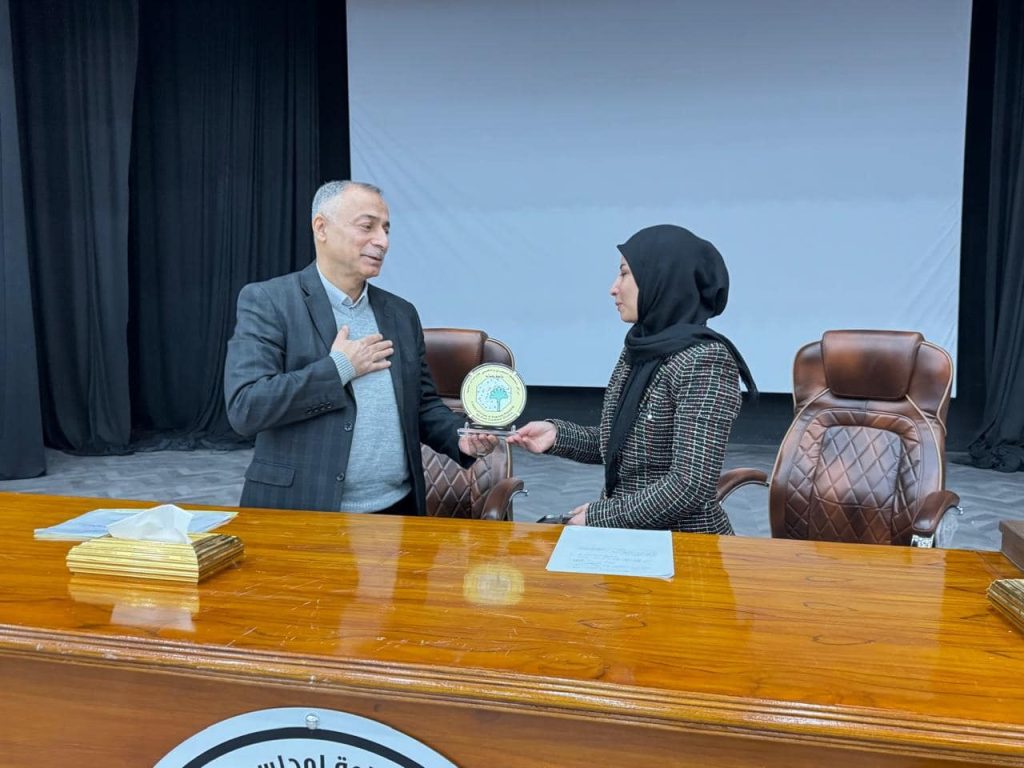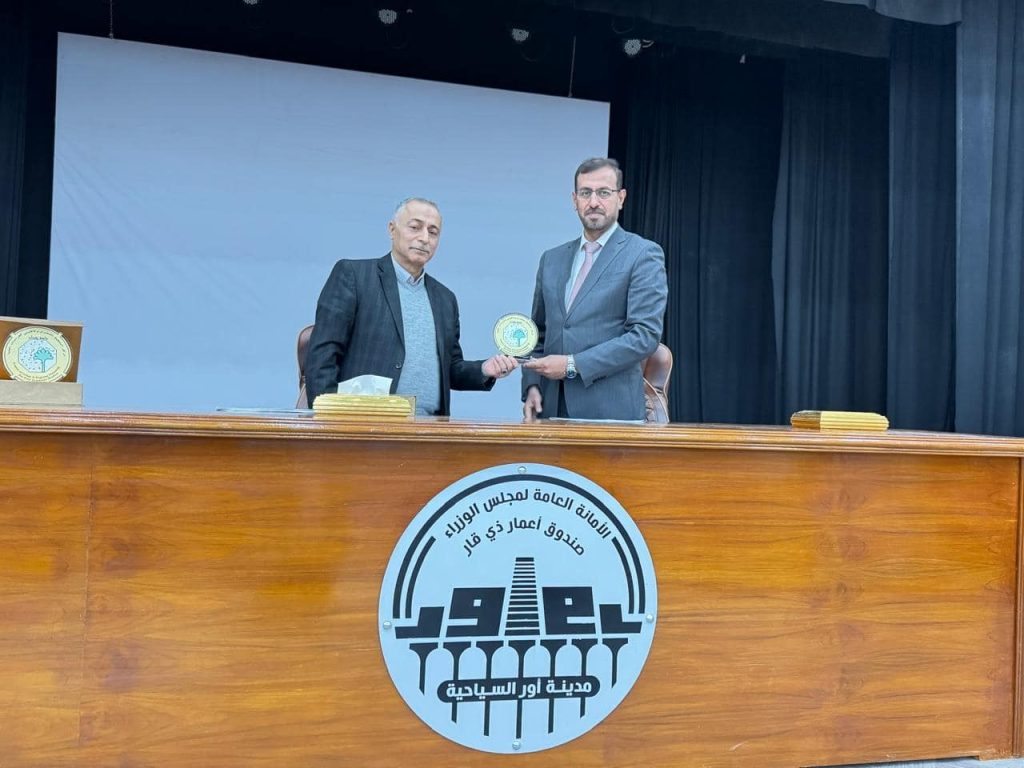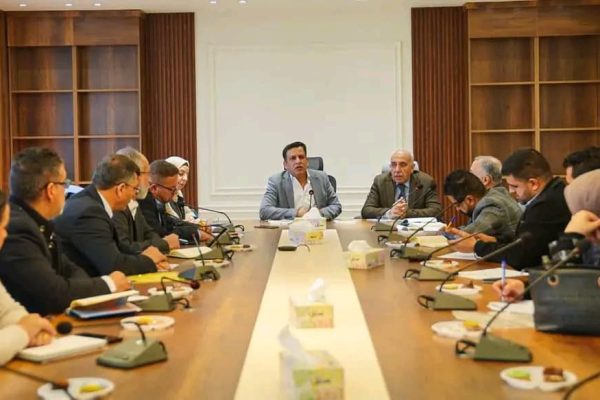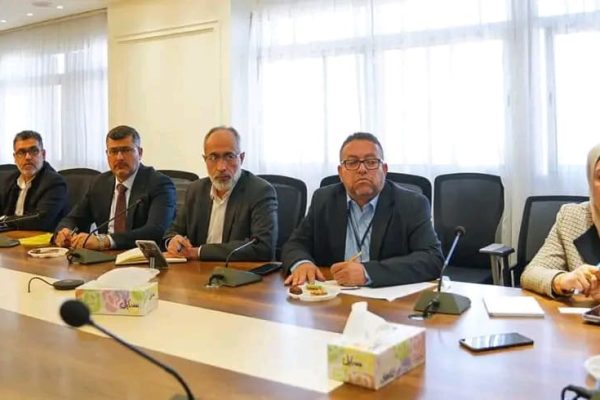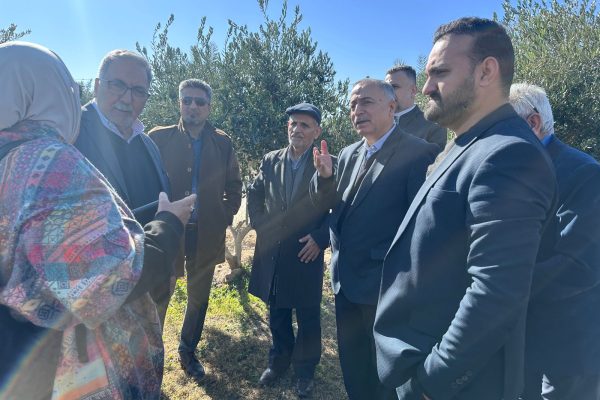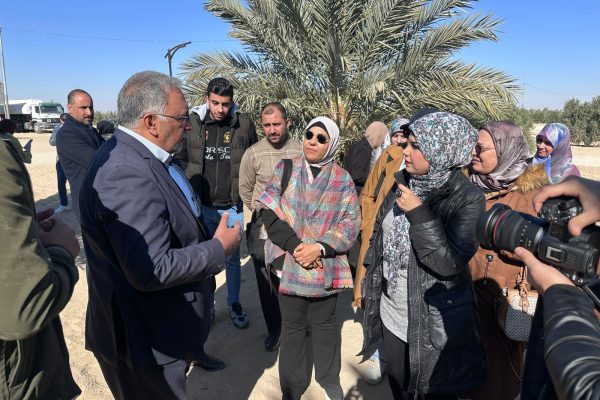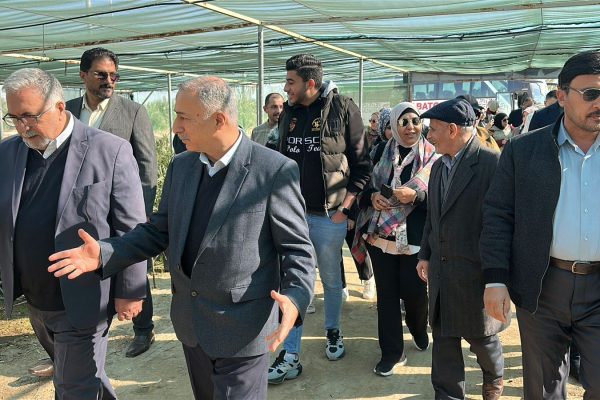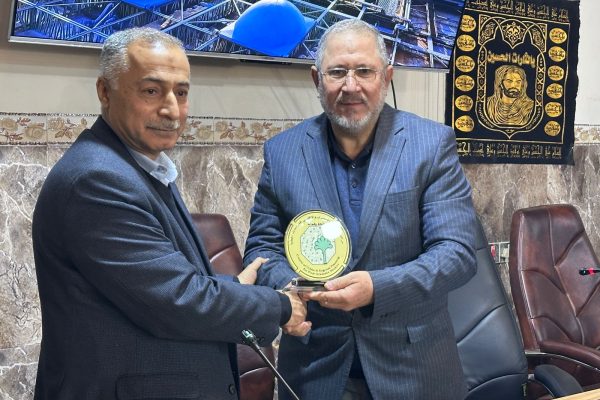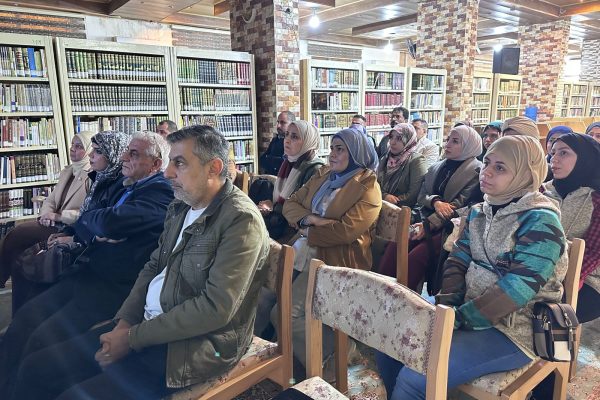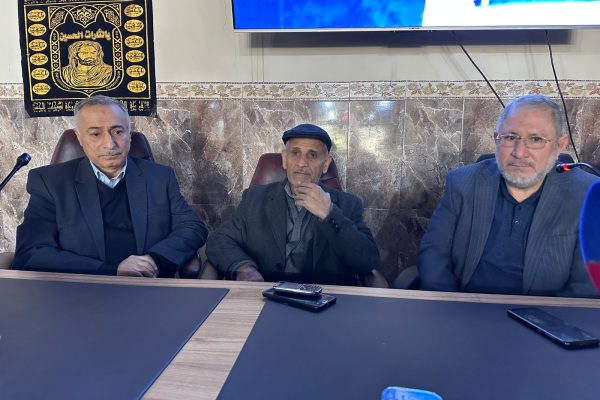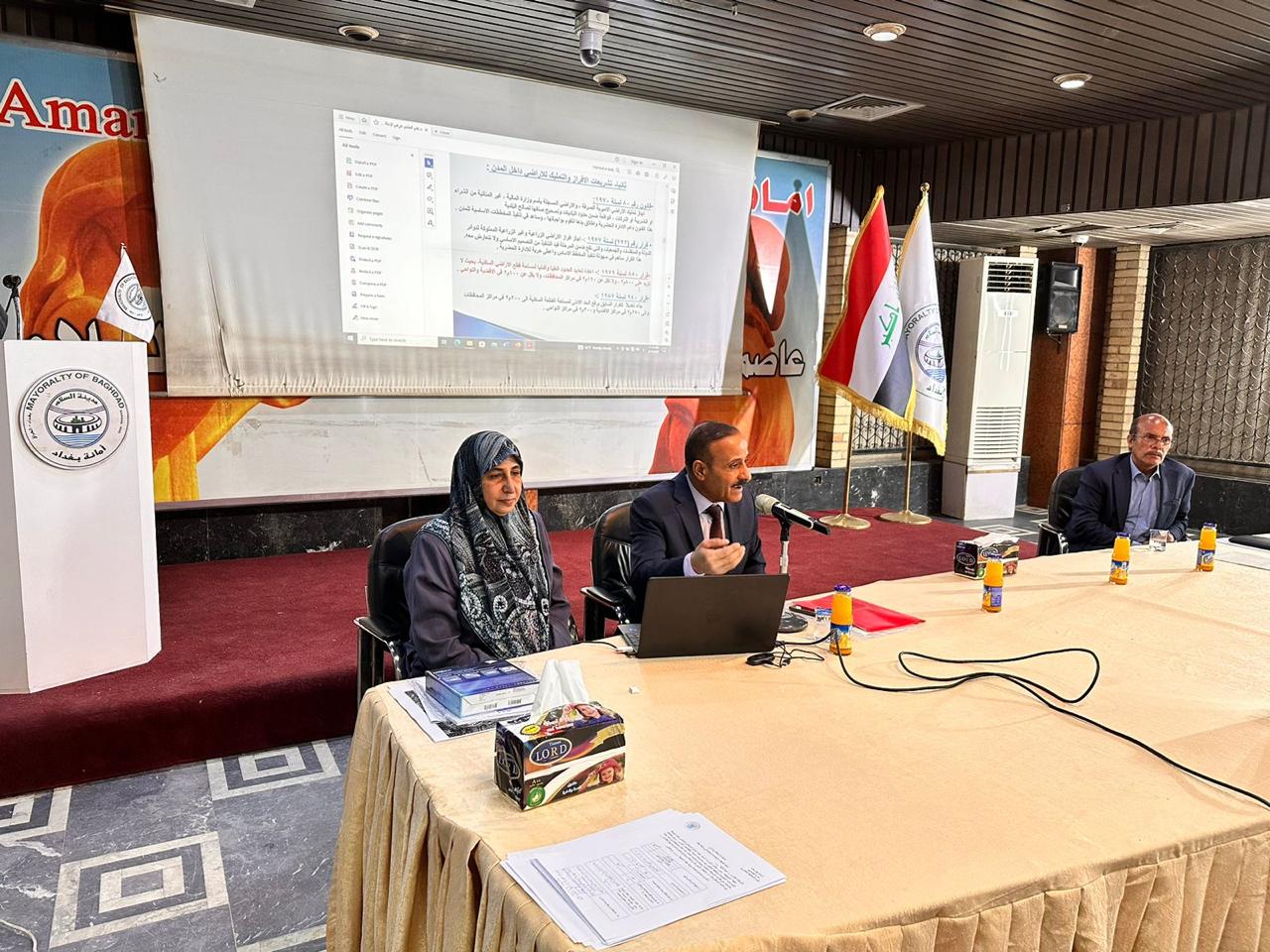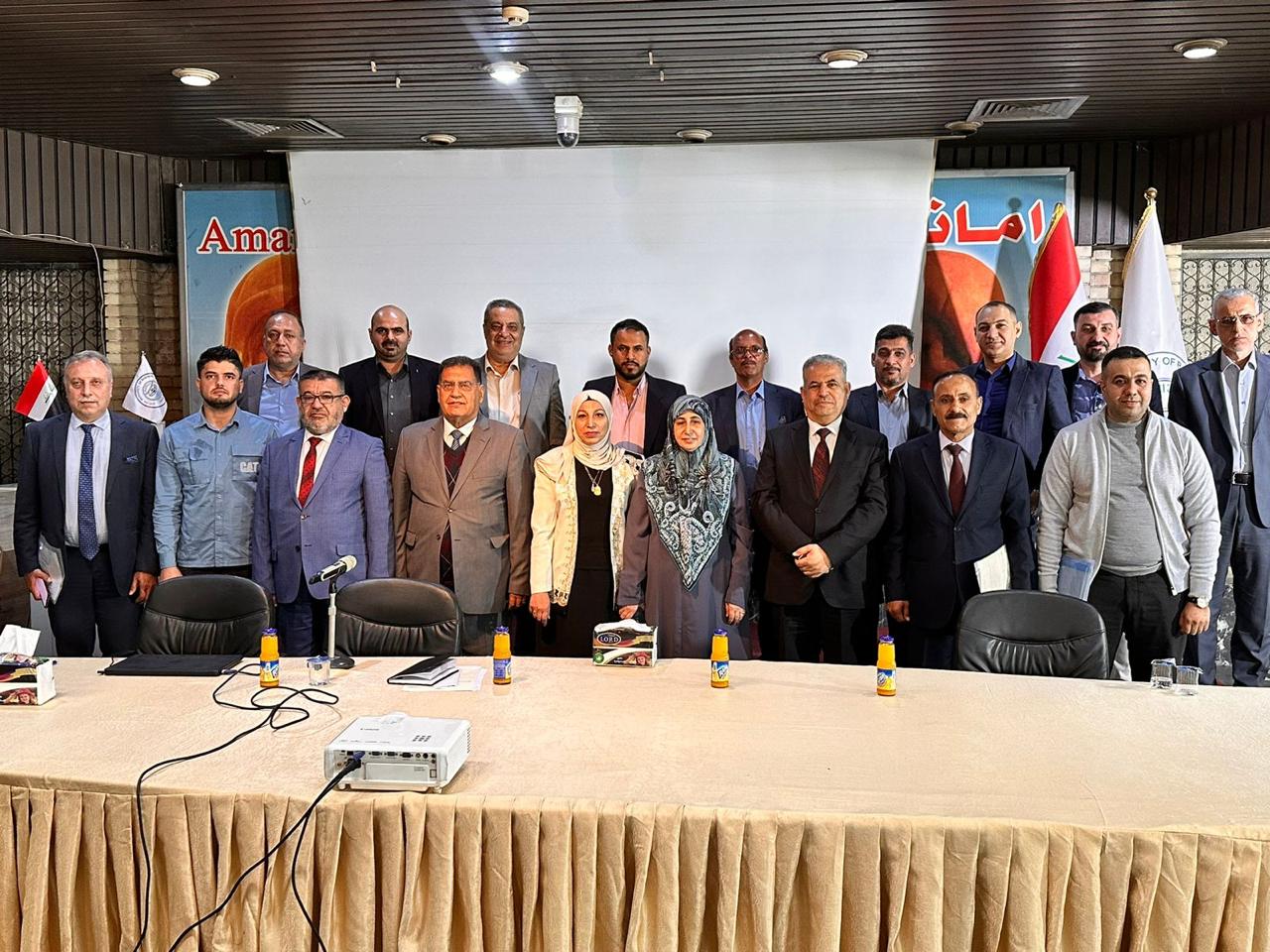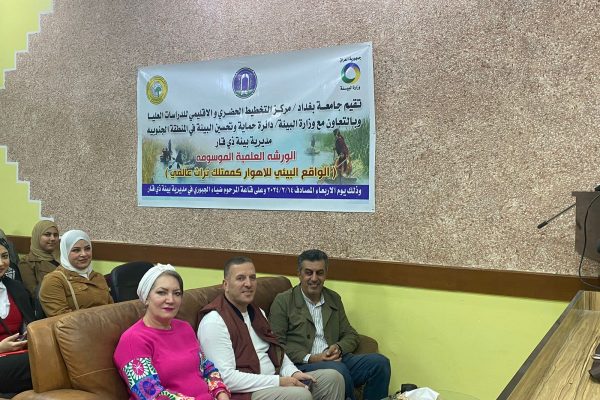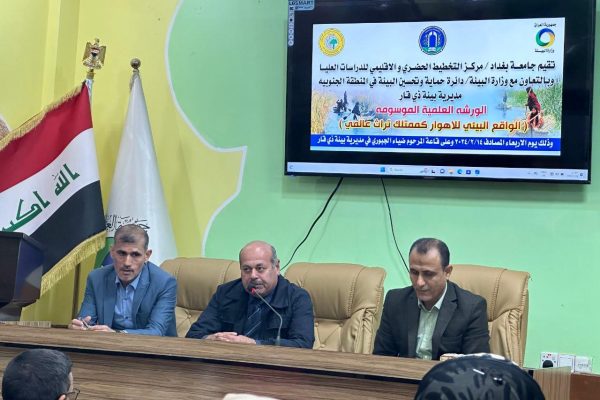Center of Urban and Regional Planning for Postgraduate Studies – University of Baghdad since its inception to provide scientific advisory services to the official authorities related to the planning of the city and the dimensions of social, economic, security, environmental, transport, traffic and cultural aspects and everything related to aspects of human daily life spatial dimension, where our library has provided many institutions with Ph.D. theses, master theses and higher diploma projects of our students and get benefit from it and by what serving the community as :
Ministry of Environment / Technical Department / Marshlands Division and Sustainable Management of Ecosystems.
Parliament Council / office / Research Department.
National Security Council / National Security Adviser / Al – Nahrain Center for Strategic Studies.
Ministry of Water Resources – Marshlands and Wetlands Rehabilitation Center.
The Center Participates in a Project to Alleviate Traffic Congestion at the University of Baghdad Intersection
The Center of Urban and Regional Planning for Postgraduate Studies participated in addressing the traffic congestion problem at the University of Baghdad intersection through coordination between the university administration and the Ministry of Housing and Construction.
Engineer Ahmed Ismail, an advisor to the Ministry of Housing, inspected the access points to the Universities of Baghdad and Al-Nahrain, which are adjacent to the Tigris River, to connect them with the ongoing overpass projects towards the east of the University of Baghdad. These projects aim to accommodate traffic coming from Karkh towards Rusafa, thus alleviating traffic congestion and improving the entrances and exits of both universities.
The inspection tour was also attended by the Director of the Construction Department and his deputy from the University of Baghdad, as well as representatives from the University of Al-Nahrain, to review the approaches to the two universities and discuss ideas and visions for resolving the traffic congestion.
The Center Participates in the First Scientific Forum to Reduce Accidents
Two faculty members from the Urban and Regional Planning Center for Postgraduate Studies at the University of Baghdad, Professor Dr. Areej Khairi Al-Rawi and Professor Dr. Nada Mohammed, participated in the First Scientific Forum on Reducing Traffic Accidents, held at the Babylon Hotel in Baghdad. The forum was attended by the Minister of Interior, Abdul Amir Al-Shammari, his Deputy for Police Affairs, Lieutenant General Hadi Arzij, the Director General of Traffic, Lieutenant General Dr. Uday Samir, as well as traffic directors from all governorates and a group of academics from the University of Baghdad.
Al-Rawi presented her research paper, titled "The Importance of Road Hierarchy in Achieving Traffic Safety," at the meeting. She highlighted the problem of the unplanned construction of several private colleges, which has caused significant traffic congestion and obstructed the flow of vehicles during peak hours. This, coupled with the sheer number of vehicles, has led to an increase in traffic accidents due to pedestrians not using designated overpasses or pedestrian crossings. She emphasized that the Minister of Interior praised the importance of this scientific and practical approach and stressed to the traffic directors in the governorates the necessity of holding an annual forum on this topic in Baghdad and all governorate directorates.
The meeting concluded with a set of recommendations, including the development of a strategy to reduce traffic accidents, to be presented by conference participants; attention to the hierarchy of roads and specifications that accommodate new uses, after confirming the locations of newly established colleges within a mechanism that includes planning phases; providing a database and analyzing it using smart systems and artificial intelligence; and emphasizing the adoption of smart systems for renewing vehicle registrations, issuing driver's licenses, and administering driving tests, along with adopting new mechanisms for managing the movement of cyclists.
Symposium on Tourism Planning in Dhi Qar
The Center of Urban and Regional Planning for Postgraduate Studies at the University of Baghdad organized a symposium entitled "Tourism Planning in Dhi Qar" in cooperation with the Dhi Qar Planning Directorate. The workshop, which was attended by the Dean of the Center, Professor Dr. Kareem Hassan Alwan, and a number of his professors and graduate students, was held in the New Ur City in Dhi Qar and delivered by Dr. Alwan. The symposium aimed to highlight the tourism potential of Dhi Qar, given its temperate climate, which combines to form the marshland ecosystem, with the presence of rare waterfowl, diverse animals, and fish. It also featured traditional crafts such as traditional houses made of reeds and papyrus, which reflect the region's heritage and authenticity, as well as the presence of a botanical environment. For his part, Dhi Qar's Deputy Governor for Planning and Development, Engineer Razzaq Mahdi Al-Ali, praised the role of the Scientific Center for Tourism Revival in Dhi Qal and its environs, as well as the marshes. The center adopted the design of the tourist city according to modern planning standards that are consistent with the region's ancient history and its distinct and rich geography. He emphasized the importance of keeping pace with global scientific developments in this field and integrating artificial intelligence into urban and tourism development, based on ongoing cooperation with Iraqi scientific competencies, such as the University of Baghdad. This will raise the level of information and facilitate city management at a lower cost and with greater efficiency.
The Dean also presented the center's shield to Engineer Al-Ali, as well as to the Director of the Dhi Qar Planning Department, Engineer Yaqeen Kareem Juma, commending their efforts in preserving the city's tourism status and working to develop it.
The Dean Participates in a Meeting at the Ministry of Planning on Infrastructure and Services
The Dean of the Center of Urban and Regional Planning for Postgraduate Studies at the University of Baghdad, Prof. Dr. Kareem Hassan Alwan, participated in a meeting held by the Ministry of Planning for the Special Committee to discuss the standards of infrastructure and services, headed by the Director General of the Department of Regional and Local Development, Dr. Muhammad Mohsen Al-Sayed, and attended by the Assistant Director General of the Department of Regional and Local Development, as well as representatives of the Ministries of Higher Education and Scientific Research, Construction, Housing and Public Municipalities, the Department of Sewerage, and the Water Department of the Baghdad Municipality.
The meeting aimed to discuss the standards adopted by the Ministry of Planning and the relevant ministries to provide services in terms of infrastructure construction and development, and to choose the best services for citizens and provide them with them. Alwan confirmed that the standards of drinking water, sanitation, and public and private university education services were discussed. It is worth noting that the Center for Urban and Regional Planning has participated in various meetings related to urban planning and others with various relevant institutions, while its participation today comes within a series of meetings to prepare the unified planning standards guide in coordination with the ministries.
Dr. Kareem Hasan Participates in a Workshop on Geospatial Technologies and Smart Cities
The Dean of the Center for Urban and Regional Planning for Graduate Studies participated in a scientific workshop organized by the National Security Advisory in cooperation with the College of Engineering at the University of Baghdad, entitled (Geospatial Technologies in the Establishment and Management of Smart Cities), in the presence of the Dean of the College of Engineering, Professor Dr. Ghassan Hamid, and a number of instructors and lecturers from Iraqi and Arab universities.
Alwan presented a research entitled (Cities of tomorrow.. Sustainable Smart Cities), in which he defined smart cities as cities that anticipate the future in terms of economy, society and services and aim to provide a digital environment that is environmentally friendly and stimulates creativity. These cities work to implement work and conduct activities based on the spatial dimension of all activities using information systems (IT) technologies that provide a smart economy according to the vision of the European Union, referring to the United Nations report that confirms that 70% of the world's population will settle in city centers by 2050, thus highlighting the importance of working according to the concepts of smart cities due to the rapid growth of cities in developing countries and the increasing rates of migration from rural to urban areas. He also referred to the most important smart cities in the world such as New York, San Francisco, Amsterdam and Barcelona, in addition to Dubai, which has become the most present in the Middle East in the world of smart cities since it began in 2013 to transform into a smart city whose service facilities are managed through smart, interconnected electronic systems.
It is noteworthy that the workshop included two sessions, in which various research papers were presented on geospatial technologies, investing in artificial intelligence technologies in agriculture, and developing green spaces by enhancing sustainable planning, in addition to discussing the development of information and communication technology to achieve sustainable development.
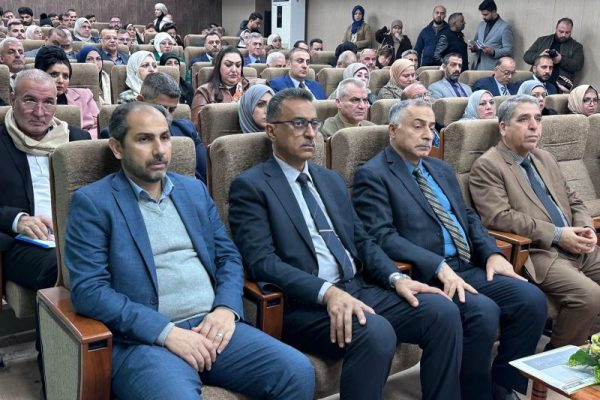
A Professor Obtains Journal Membership at the Ministry of Construction
Professor Dr. Jamal Baqir Mutlaq obtained membership in the Building Research Journal issued by the Ministry of Construction, Housing and Public Municipalities, after the journal was suspended for 34 years. Mutlaq stated that the scientific journal will be semi-annual and in both Arabic and English, and will include a complete section on urban planning. Researchers and specialists have been recruited to edit the journal with its other chapters and according to its contents and sections under the supervision of university professors with scientific titles specified by the regulations of the Ministry of Higher Education and Scientific Research in Iraq.
The Minister of Construction, Housing and Public Municipalities, Benkin Rikani, directed, during his meeting with the journal's editorial board, the necessity of enriching the journal with solid and unique scientific research, and focusing on scientific research related to the development of construction materials available in the country exclusively.
Scientific Trip to the Karbala Center for Studies and Research
The Center of Urban and Regional Planning for Postgraduate Studies at the University of Baghdad organized a scientific research trip to the Karbala Center for Studies and Research affiliated to the Holy Shrine of Imam Hussein within the framework of scientific and research cooperation between the two centers. The delegation was headed by the Dean of the Center, Professor Dr. Kareem Hassan Alwan, and a group of the center's lecturers, and a number of postgraduate students.
The delegation also visited the Fadak Model Farm during its trip, learning about the most important and best types of palm trees and seedlings in the farm, which established the principles of sustainability and spread the culture of the green environment, as it works to reduce global warming, absorb carbon dioxide and release oxygen, which provides a healthy environment for the individual and society. It is noteworthy that the center's delegation visited the library of the Karbala Center for Studies and Research, and discussed the latest scientific activities to participate in the Ninth International Scientific Conference for the Arbaeen Pilgrimage.
Dr. Alwan presented the center's shield to the Director of the Karbala Center for Studies and Research, Abdul Amir Al-Quraishi, in addition to the supervisory and scientific committees for their continuous cooperation with the Urban and Regional Planning Center for Postgraduate Studies.
Urban Planning Center Participates in a Scientific Symposium with the Baghdad Municipality on Housing Units in the Capital
The lecturer at the Center of Urban and Regional Planning for Postgraduate Studies, Assistant Professor Dr. Ali Hussein Muhammad al-Janabi, participated in the scientific symposium entitled (Division and spread of housing units in the city of Baghdad, its causes, effects, and treatment) which was held by the Baghdad Municipality.
Al-Janabi presented a working paper entitled (Division of housing units and its impact on the quality of life in the city), which included 3 tracks. The first dealt with the interaction between the elements of the urban complex (humans, legislation, and architectural composition in the place), as well as their relationship with the external environment, while the second touched on the most important planning legislation that regulates the urban environment, with a focus on legislation that has a clear impact on the division of residential units, which caused the abolition of the concept of urban areas in the city of Baghdad, and the rise in building, housing and population densities, and then its negative repercussions on the quality of life in the city. It also included presenting some field footage showing the decline in urban indicators. The third track highlighted the most important impacts on the urban environment and the quality of life in it in terms of cause and effect.
The research paper presented some recommendations and solutions, which were on two levels. The first level included the urban system itself, and the legislation it requires or amends it, to reduce the negative impacts on the quality of life in the city, as well as adopting appropriate housing policies to meet residential demand and meet the housing need without negative impacts on the existing urban system, while the second level dealt with the measures that must be taken from outside the urban system at the regional and national levels to protect the city from the pressure of immigration entering it, by activating spatial development factors in the countryside and governorates to reduce migration to the capital, Baghdad.
Urban Planning Center Participates in a Workshop with the Ministry of Environment on the Environmental Reality of Marshes
The Center of Urban and Regional Planning for Postgraduate Studies at the University of Baghdad participated in a scientific workshop entitled (The Environmental Reality of Marshes as a World Heritage Property) in cooperation with the Department of Environmental Protection and Improvement in the Southern Region of the Ministry of Environment. Professor Dr. Jamal Baqir Mutlaq represented the Center and confirmed in his paper that climate change has affected all countries, and one of the most prominent manifestations of climate change in Iraq is the decline in the levels of the Tigris and Euphrates rivers, the scarcity of the levels of dams and marshes, as well as the lack of rain.
Dr. Mutlak stressed that the results of these changes had a negative impact on the country, as they led on the social level to migrate from the countryside and marshes to the cities, in addition to their economic impact, which contributed to a decline in agricultural production and its repercussions on food security and the overall economy in general, while Iraq was affected, environmentally, by the quality of water and ecological diversity, in addition to the decrease in arable areas, and thus the expansion of desertification areas.
Dr. Mutlak also pointed out in his paper, through the studies he implemented and supervised, that climate changes and the decline in river water levels affected the urban aspect and housing and caused migration, displacement, the emptying of marshland areas, an increase in demand for housing and services, and the emergence of random housing problems in the areas to which migration took place.
The workshop included two lectures, which dealt with the impact of climate change and the planning and environmental vision for developing human settlements in the marshes, in the presence of a group of professors and general directors from various relevant ministries and departments.
Urban Planning Center Professor Participates in UNICEF Workshop
A lecturer at the Center of Urban and Regional Planning for Postgraduate Studies at the University of Baghdad, Professor Dr. Nada Khalifa, participated in the annual review workshop of UNICEF, which was held at the Training and Development Center of the Ministry of Construction, Housing and Public Municipalities. Khalifa confirmed that the workshop aimed to evaluate the achievements of the program of the Water, Sanitation and Hygiene Department at UNICEF, in addition to reviewing the annual achievements of the Baghdad office and its plans and priorities for the coming year 2024 related to the environment, such as energy sustainability and how to invest solar energy in educational institutions, noting that taking into consideration issues of climate change and mechanisms for mitigating it through rationalizing water consumption and urging afforestation and cultivation of available spaces within government and educational institutions.
It is noteworthy that this participation of the Center comes within the field of opening horizons for cooperation with international organizations, openness to them, and exchanging ideas. It is noteworthy that the workshop was attended by representatives of the Ministry of Construction, Housing and Public Municipalities and the Ministries of Health and Education, in addition to the participation of the University of Technology in Baghdad.
